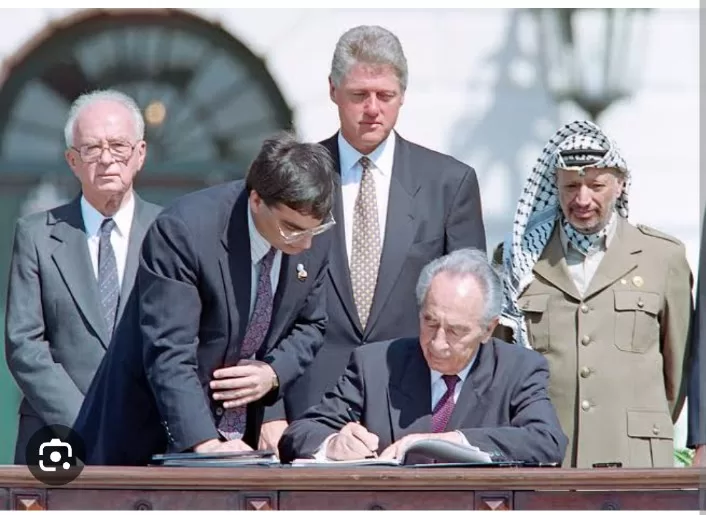The Oslo Accords, signed in 1993, marked a historic attempt to bring an end to the decades-long Israeli-Palestinian conflict. These agreements were hailed as a significant step toward achieving lasting peace in the Middle East. However, over the years, the question has arisen: Did the United States fail the Oslo Accords? To answer this, we must examine the complex journey of the Accords and the role played by the United States.
In the early 1990s, the Oslo Accords emerged as a glimmer of hope in a region ravaged by conflict. The negotiations, facilitated by Norway, brought together Israeli and Palestinian leaders in a bid to resolve their differences. The Accords consisted of a series of agreements, with the Oslo I Accord (1993) and Oslo II Accord (1995) being the most notable.
The United States, under President Bill Clinton, played a pivotal role as a mediator and supporter of the peace process. American diplomacy was instrumental in bringing the two sides to the negotiating table and maintaining momentum throughout the process.
In the early years, the Oslo Accords achieved some notable successes. The Palestinian Authority was established, and elections were held in the West Bank and Gaza Strip. However, serious challenges soon emerged. Issues like the status of Jerusalem, the borders of a future Palestinian state, and the rights of Palestinian refugees proved to be deeply divisive and difficult to resolve.
One pivotal moment in the Oslo Accords’ trajectory was the Camp David Summit in 2000, hosted by President Clinton. This summit aimed to address the core issues of the conflict, but it ultimately collapsed. The failure of Camp David had far-reaching consequences, including a breakdown in trust between the parties and an escalation of violence, known as the Second Intifada.
Critics argue that the United States, while making considerable efforts, failed to bridge the gaps between the Israeli and Palestinian positions at Camp David. Some believe that the U.S. could have exerted more pressure on Israel to make concessions, while others contend that Palestinian leadership also missed opportunities for compromise.
In the years following Camp David, the Israeli-Palestinian conflict entered a protracted stalemate. Peace talks would sporadically resume but ultimately falter. Meanwhile, the situation on the ground continued to deteriorate, with settlements expanding in the West Bank, security barriers erected, and periodic outbreaks of violence.
The landscape of the Middle East has evolved significantly since the signing of the Oslo Accords. The emergence of new regional dynamics, including the Arab Spring, the rise of non-state actors, and shifting alliances, has added complexity to the peace process. The United States’ role in the region has also evolved over time, impacting its ability to mediate effectively.
It is essential to recognize that the Israeli-Palestinian conflict is deeply entrenched, with historical, political, and emotional dimensions that defy easy solutions. While the United States has made significant efforts to advance the cause of peace, it cannot bear sole responsibility for the success or failure of the Oslo Accords.
In conclusion, the question of whether the United States failed the Oslo Accords is a complex one. While American diplomacy played a critical role in initiating and sustaining the peace process, the conflict’s deeply rooted issues, changing regional dynamics, and the actions and decisions of the parties themselves have all contributed to the challenges and setbacks. The Oslo Accords remain an unfinished chapter in the quest for Israeli-Palestinian peace, and their ultimate success or failure depends on a multitude of factors beyond the influence of any single nation.







